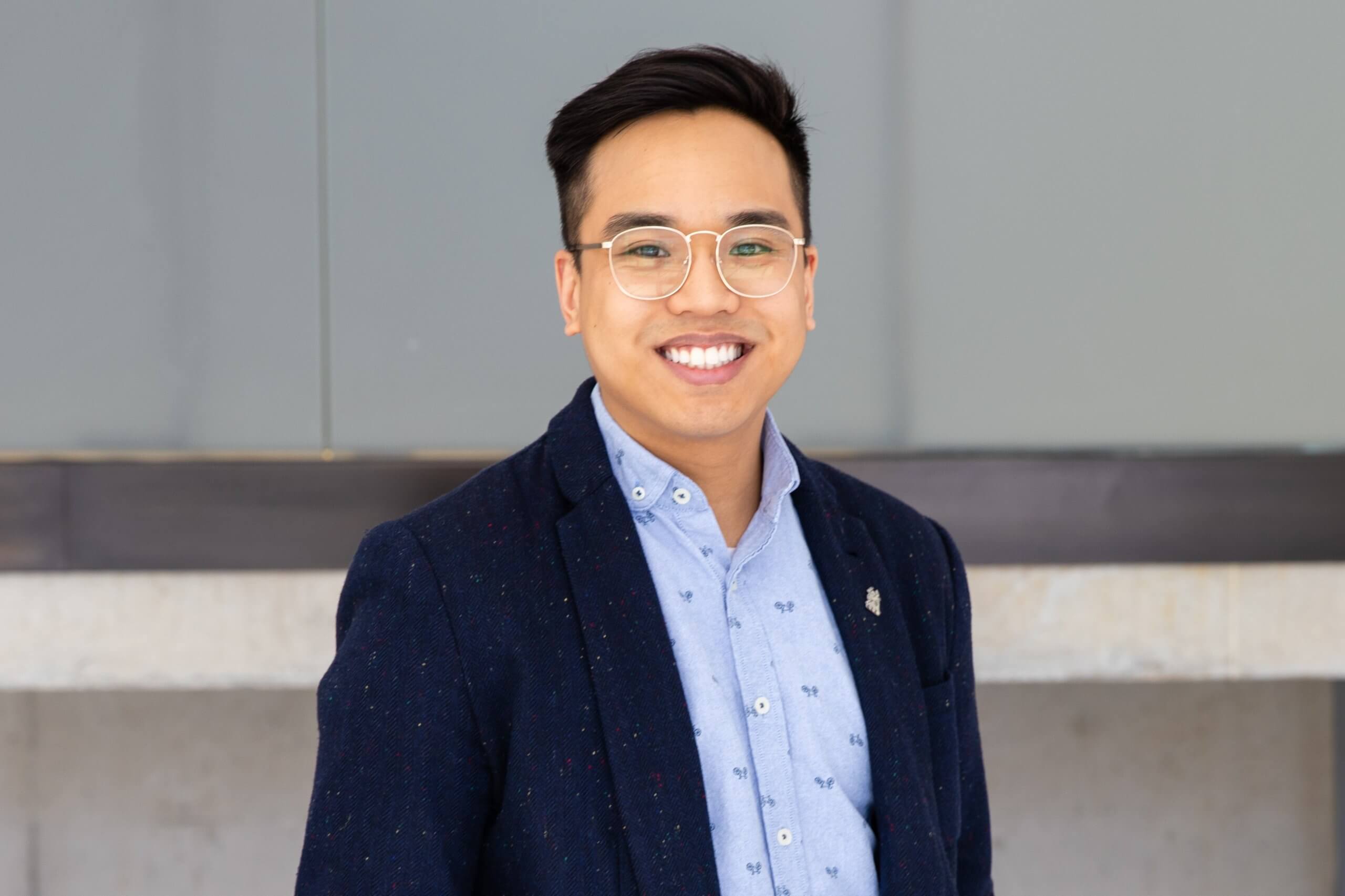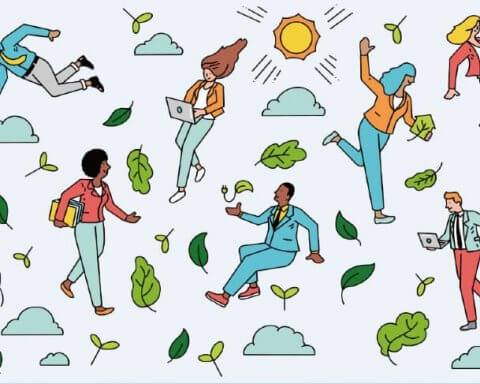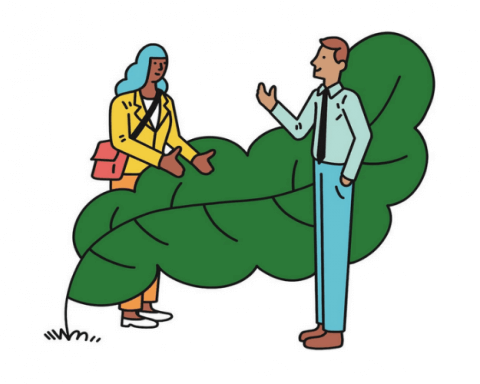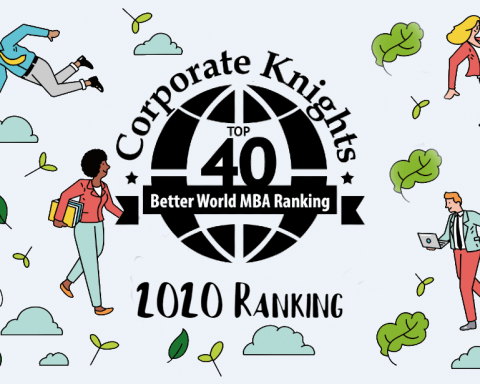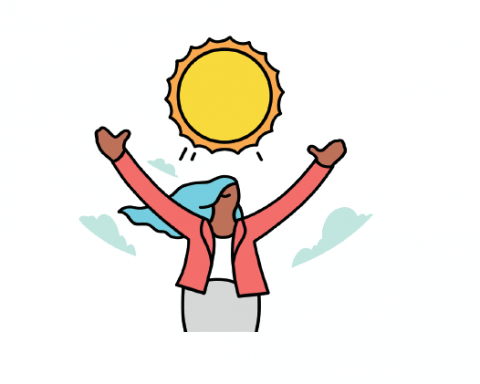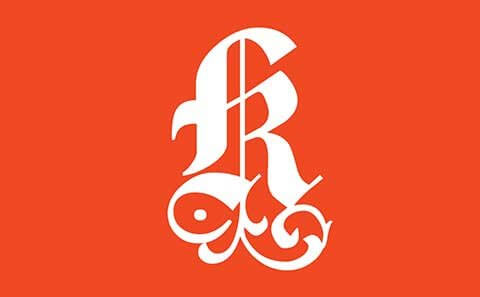As a scientist with two advanced degrees – and the youngest program director of the National Research Council (NRC), at age 27 – Phil De Luna could come to the climate change table as a technocratic know-it-all. Instead, he brings empathy for Alberta’s oil and gas industry and other sectors disrupted by what he sees as “the biggest problem we have as a species.”
“What I am really passionate about is ensuring this transition [to a low-carbon economy] is a just one and there is economic opportunity for everyone in this energy transition,” says De Luna, whose people-oriented outlook is rooted in experience. Growing up in Windsor, Ontario, in a family of Filipino immigrants to Canada, he witnessed the devastating 2008/2009 recession that eviscerated a once-vibrant community dependent on car manufacturing. His father was among thousands laid off. “The theme of economic prosperity really resonates with me, and today, when I look at Alberta and our energy sector, that really resonates with me again,” he says.
As director of NRC’s Materials for Clean Fuels Challenge program, with a budget of $57 million over seven years, De Luna works with research scientists and the oil, gas and petrochemicals industry to identify promising technologies to reduce CO2 emissions. After an exploratory phase ends in 2021, the program will select the most promising candidates that, by 2026, could leave the lab for adoption by energy companies and private investors.
A co-founder of a venture to convert carbon dioxide into ethylene, De Luna likens his NRC role to a venture capitalist who backs promising ideas that generate returns in several years. In his case, he says, he looks for ideas with global impact. “My return on investment is not necessarily a monetary return. It is the potential for greenhouse-gas-emission reduction.”
Jesse Popp
Indigenous Environmental Stewardship Chair, University of Guelph

Wildlife ecologist Jesse Popp likes to see the whole picture in her research.
A member of Wiikwemkoong Unceded Territory in northern Ontario, she blends Western and Indigenous perspectives into her investigations of declining species and fluctuating wildlife populations.
“All my research takes this ‘two-eyed seeing’ approach to weaving together Indigenous and Western ways of knowing,” says Popp, who in September 2020 became the first Chair in Indigenous Environmental Stewardship at the University of Guelph. “Both are complementary to one another, and you get a better understanding of the world.”
One project is a study of declining moose populations across North America and several regions of Ontario. She applies Western scientific methods while gathering insights from Indigenous Elders and knowledge holders on changing land use and environmental conditions.
“Moose are a culturally important species to many First Nations,” Popp says. “We are basically bringing together Indigenous and Western knowledge systems to try and understand why the moose populations are declining and how that is impacting the environment and the communities that rely on moose.”
An emerging scholar, Popp previously held a Canada Research Chair (Tier 2) in Indigenous Environmental Science at Mount Allison University and is a current recipient of a Natural Sciences and Engineering Research Council grant (2018–2023) to study the influence of natural and man-made pollutants on wildlife diversity and populations.
Early in her career, Popp questioned the exclusion of Indigenous perspectives in Western scientific research. That led her to develop Laurentian University’s first course in biology with Indigenous perspectives and history to create a whole picture of the discipline.
Her commitment to “two-eyed” research has only deepened, adding to her perspective on sustainability.
“If we respect our [interpersonal] relations, if we are responsible and if we are reciprocal, we can in turn live sustainably with the earth.” If so, she adds, “sustainability will come naturally.”
Simon Pek
Assistant professor, University of Victoria Gustavson School of Business

Democracy is under siege but count Simon Pek at the University of Victoria as “cautiously optimistic” about the potential to invigorate democratically run organizations.
In that cause, he wears many hats. An assistant professor of sustainability and organization theory at the university’s Gustavson School of Business since 2017, the 33-year-old won the inaugural UVic President’s Chair, the university’s highest academic honour, for contributions to teaching, research and the wider community. He is also co-chair of Gustavson’s Carbon Neutrality Plus committee to reduce greenhouse gas emissions and is a co-founder and board member of Democracy in Practice, a non-profit that promotes leadership capacity-building.
One of his research interests is the role of democracy in unions, worker-owned firms and cooperatives. Though democratic, these organizations too often wind up with entrenched leadership, leaving little room for new, diverse voices. “They have the same paralysis and problems as many societal governments,” he says.
One remedy, he says, is a democratic lottery to recruit new leaders from a pool of interested individuals. The result is a randomly selected group whose members collaborate on decision-making. “It’s less top-down and more horizontal,” Pek says, and enables added input from women and minorities.
His interest in the gig economy has prompted an examination of alternatives to new business platforms like ride-sharing Uber. “That [model] comes with enormous consequences for workers and communities in particular,” he says. An alternative is a worker-run cooperative whose members decide on practices and profit-sharing.
“I want to broaden what we think of as organizations,” Pek says. “Tons of organizations, not just those for profit, can play a massive role in positively addressing the SDGs.”
Jennifer Lewington is an intrepid reporter and writes regularly on many topics, including business school news. If you know an emerging sustainability researcher who you think should be profiled, contact editorial@corporateknights.com.

